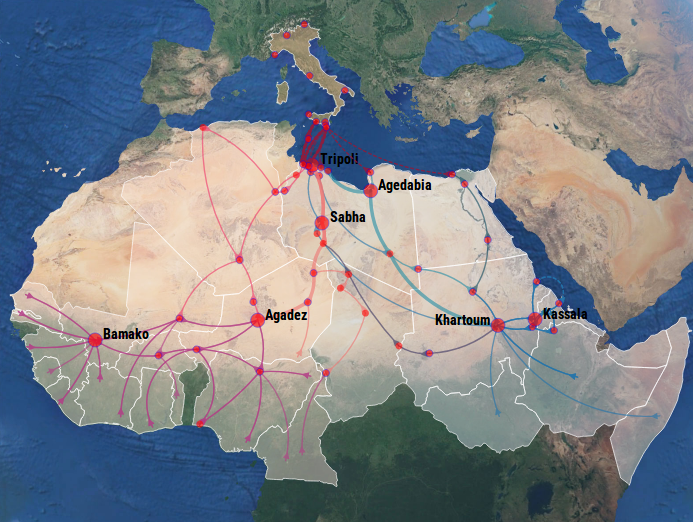Jacques Delors Institut | 28.09.2017
Link to the Print-Version
The idea to set up EU hotspots in North Africa keeps coming up as European leaders seek enhanced control of mixed migration in the Mediterranean. Like the cat in Harry Miller’s comical song, external processing of asylum claims just won’t stay away. How realistic is it for the EU to establish external hotspots? This blog post outlines political, legal and practical issues related to the hotspots idea.
1 The recurring temptation of external hotspots
On 28 August 2017, French president Emmanuel Macron gathered the leaders of Germany, Italy, Spain and the European External Action Service (EEAS) to discuss migration in the Sahel region with the Heads of State of Chad and Niger and the Libyan Government of National Accord. For European leaders, the main objective was to intensify existing efforts to control migration towards Libya’s Southern borders and thus reduce perilous crossings on the Central Mediterranean Route. The resulting common declaration foresees, among several co-operation initiatives, “protection missions” in those three countries, aimed both at fighting human trafficking and setting up resettlement channels in cooperation with the UN High Commissioner for Refugees (UNHCR). President Macron presented this result as the concretisation of a controversial announcement he had made in July: his intention to set up ‘hotspots’ in Libya. In fact, the envisaged protection missions in Niger and Chad are far from constituting “EU hotspots”. Chad and Niger only accepted the establishment or repurposing of centres in which UNHCR-recognised refugees could apply for resettlement. As Chancellor Merkel noted, “Hotspots is probably not the best term to designate the centres”.
Weiterlesen »

